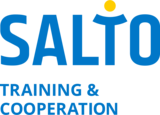ETS Competence Model for Youth Workers to Work Internationally
Offering young people the opportunity to join learning mobility projects across Europe require certain competences from those working with and for young people. But which specific competences are really needed to support quality development of such European learning mobility activities for youth workers and for young people – and how can such competence models embedded in measures designed to train youth workers?
To answer these questions, experienced actors in charge of developing and implementing training strategies and training courses for youth workers are brought together at an expert seminar, 18-21 April 2016 | Vienna, Austria. This seminar aims at introducing the new ETS Competence Model for Youth Workers to Work Internationally and to reflect on applying competence models in non-formal training strategies or formal curricula to train youth workers. Participants are invited to reflect on the first version of the ETS Competence Model for Youth Workers to Work Internationally, drafted by (SALTO T&C RC) and Gisele Evrard-Markovic (freelance trainer).
The Competence Model for Youth Workers to Work Internationally has been further explored during a LABORATORY (5-6 February 2018) that elaborated guidelines for the implementation of the Model and the communication and support around it. These guidelines include a draft concept for a series of pilot courses that should lead to a final modular training offer for youth workers using the Model.
The first residential pilot course - YOCOMO on the competence-based approach - took place on 4-10 June 2018 in Rome, Italy.The team of trainers for this first pilot course was Salvi Greco and Snežana Bačlija Knoch. The report is available here.
Second pilot course - YOCOMO on the trigger for attitudes and behaviours - took place in Germany on 7-11 May 2019. The team of trainers for this first pilot course was Salvi Greco, Snežana Bačlija Knoch, and Monika Kezaite-Jakniuniene.
The next edition of YOCOMO on the trigger for attitudes and behaviours will take place in Königswinter, Germany 4-10 May 2020 with the same team.
YOCOMO on the systemic approch to comepetence development will take place in Latvia on 2-8 March 2020. The team of trainers consists of Snežana Bačlija Knoch, Darko Markovic and Natasha Gudakovska.
Parallel to the residential courses, an online environment will also be developed throughtout 2020, with a focus on developing a [self]assessment tool and a series of e-learning courses.
Downloads
The following downloads are available:
